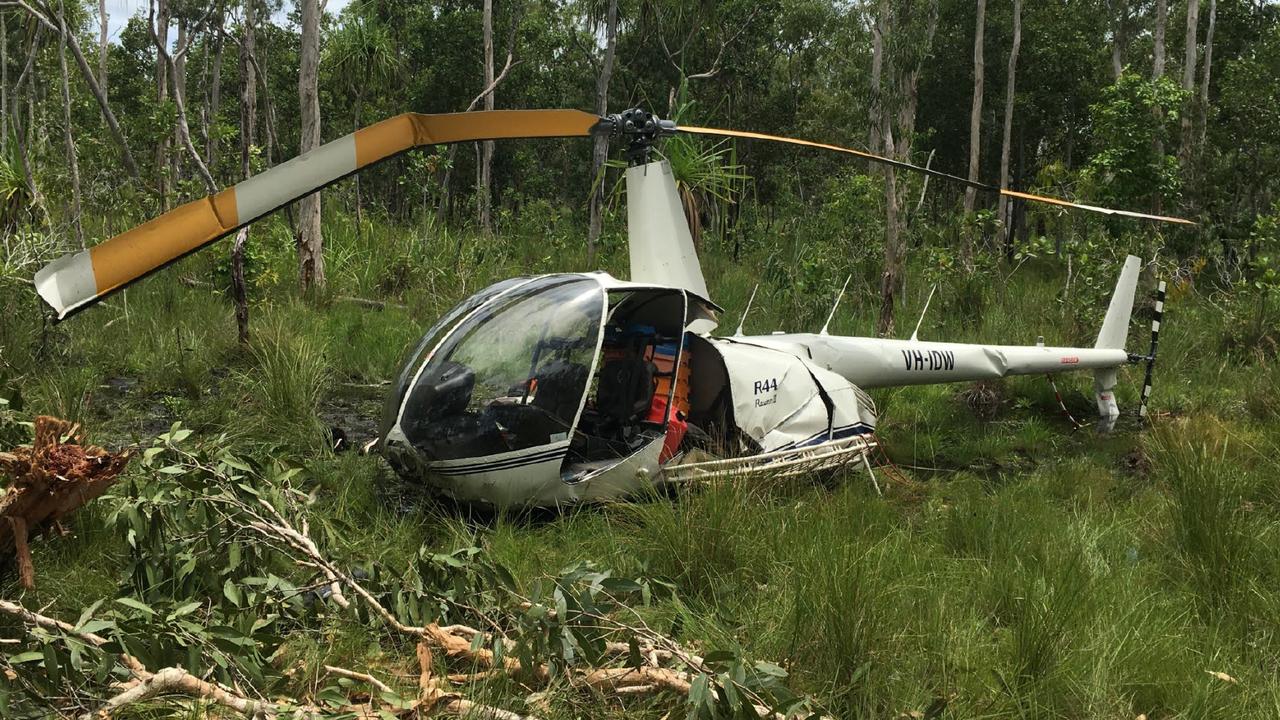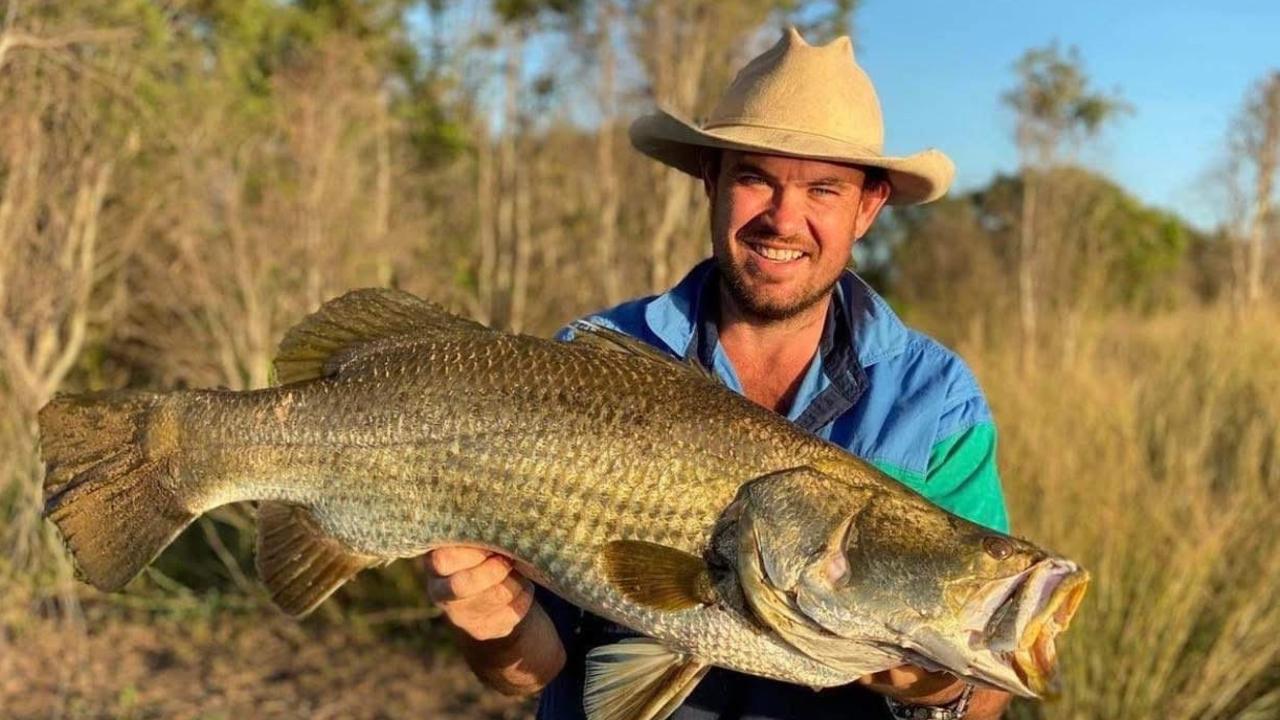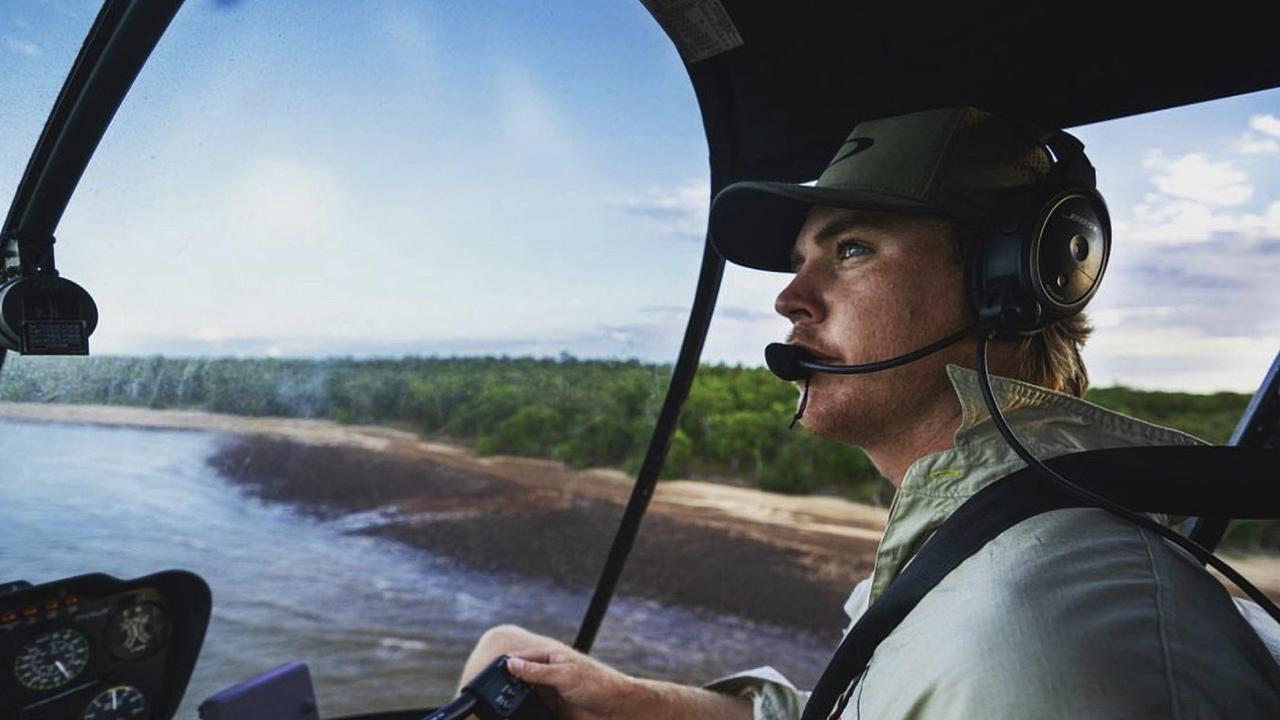Final ATSB report into chopper crash that killed Outback Wrangler Chris ‘Willow’ Wilson handed down
A Territory reality television star has shared a teary response to the aviation watchdog’s final report into the crash that killed his mate Outback Wrangler Chris ‘Willow’ Wilson.
A pilot flying with a chopper company with a “long history of non-compliance” failed to refuel ahead of a fatal crocodile egg collecting mission in the Northern Territory.
The Australian Transport Safety Bureau released its final report into the helicopter crash which killed Outback Wrangler star Chris ‘Willow’ Wilson on February 28, 2022, calling for stronger oversight of chopper operators by the regulator.
The last time friends saw the 34-year-old beloved Territory dad, he was dangling 30m from a Robinson R44 flying over a croc-filled paperbark swamp at the King River, West Arnhem.
Ninety minutes later the Outback Wrangler crew member was dead, and his 28-year-old pilot Seb Robinson was left in a critical condition.
Twenty months after the fatal crash, the transport safety watchdog has released a 113-page report which confirmed the engine stopped mid-flight, likely due to fuel exhaustion.

ATSB Chief Commissioner Angus Mitchell said the investigation concluded the chopper was likely not refuelled at a fuel depot about three-quarters of the way between Darwin and King River.
Despite witnesses recalling refuelling at Mount Borradaile, fuel samples from the site did not match those taken from the wreckage of the chopper.
Mr Mitchell said in “environments that are cognitively busy” — such as flying in a remote area with your friend dangling from the chopper and hunting for crocodile nests — the warning signs of low fuel were missed.
The investigation also found low levels of cocaine in Mr Robinson’s blood samples, with his alleged drug use in the days earlier possibly contributing to fatigue and inattention.
“The pilot did not identify the reducing fuel state before the helicopter’s engine stopped due to fuel exhaustion,” Mr Mitchell said.
ATSB said during the emergency landing, Mr Robinson made a split second decision to release the hooks and sling line carrying Mr Wilson.
It is estimated the Territory dad was dropped from a height of 9m, a fall he was unlikely to survive.
Investigators said the helicopter’s emergency locator transmitter was removed from its mount before the crash, which likely delayed an emergency response.
The ATSB was critical of the helicopter company operator Helibrook — which is owned by reality television star Matt Wright — saying the company was not using its safety management system to systematically identify and manage operational hazards.
There are requirements for helicopter maintenance every 100 hours of operation, yet investigators concluded Helibrook was likely not recording its full flight hours.
The investigation found several engine defects, which likely affected the engine’s maximum power output.
“Helibook had likely overrun the helicopter maintenance, inspection and overall periods, which increased the likelihood of the helicopter experiencing a technical failure or malfunction,” the ATSB said.

Mr Mitchell said Helibrook had a “history of non-compliance with regulatory requirements, maintenance standards and accurate record keeping, (which) increased the risk level for much of their aviation activities”.
Helibrook has stopped its commercial helicopter operations since the crash.
In a statement posted to Instagram, Mr Wright noted the findings of trace elements of cocaine in Mr Robinson’s blood tests, saying he had a strong stance against drugs and was “not having any of my guys do ‘em”.
“To find this out has blown me away. If I had known then he wouldn’t have been flying Willow nor would he be flying any of our machines,” Mr Wright said.
Mr Wright — who faces criminal charges for allegedly tampering with the crash site — appeared to break down in tears as he talked about the “rumours” and “false allegations” which had hurt his family.
“Nothing is going to bring a mate back, I just hope that this report does bring some closure on how this accident happened.”
The aviation watchdog also found the regulator, the Civil Aviation Safety Authority, was not sufficiently overviewing the dangers when issuing high-risk sling-operator licences.
“The ATSB found that CASA did not have an effective process for assuring an authorisation – the instrument issued to the operator – would be unlikely to adversely affect safety,” Mr Mitchell said.
The regulations required companies to implement safety plans with a list of conditions to mitigate the risks, which would be subject to annual approvals.
But the ATSB found CASA had stripped back these conditions, removing 5m height conditions and speed limits no faster than walking speed.
After 2017 there were no height restrictions, and “pilot assessed safe speeds”.

Despite CASA passing regulations that meant sling operations had to be flown off the more reliable turbine engine helicopters in 2021, Helibrook was granted a three-year exemption to keep flying the Robinson R44.
“At the operator and regulatory level, effective safety management processes that identify and safely manage hazards are vital to preventing future accidents,” Mr Mitchell said.
CASA Chief Executive Officer and Director of Aviation Safety Pip Spence said the ATSB findings that it should have better documented its licence decision making and internal risk management methodology had been addressed.
The ATSB conducts “no-blame” investigations, with its findings referred to the Australian Federal Police and the NT Police.





